Marine Debris
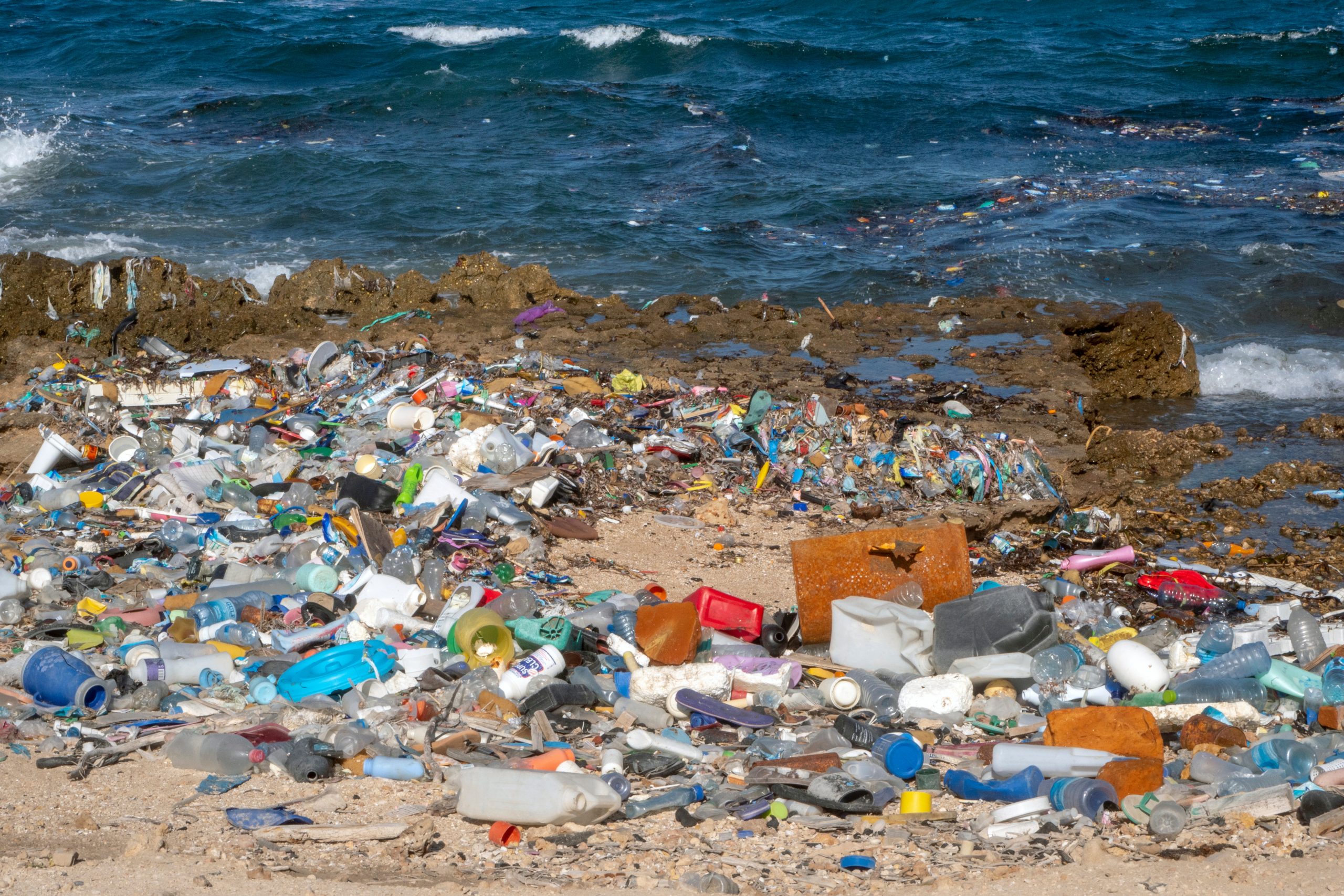
Marine debris is a global problem that injures and kills marine animals, threatens to navigational safety, and poses a human health threat. WHOI Sea Grant is dedicated to the reduction of marine debris, regionally and globally. We are actively involved in the mitigation of marine debris in our environment by funding research into the issue, conducting our own research and debris removal projects, and through education and community building.
Research
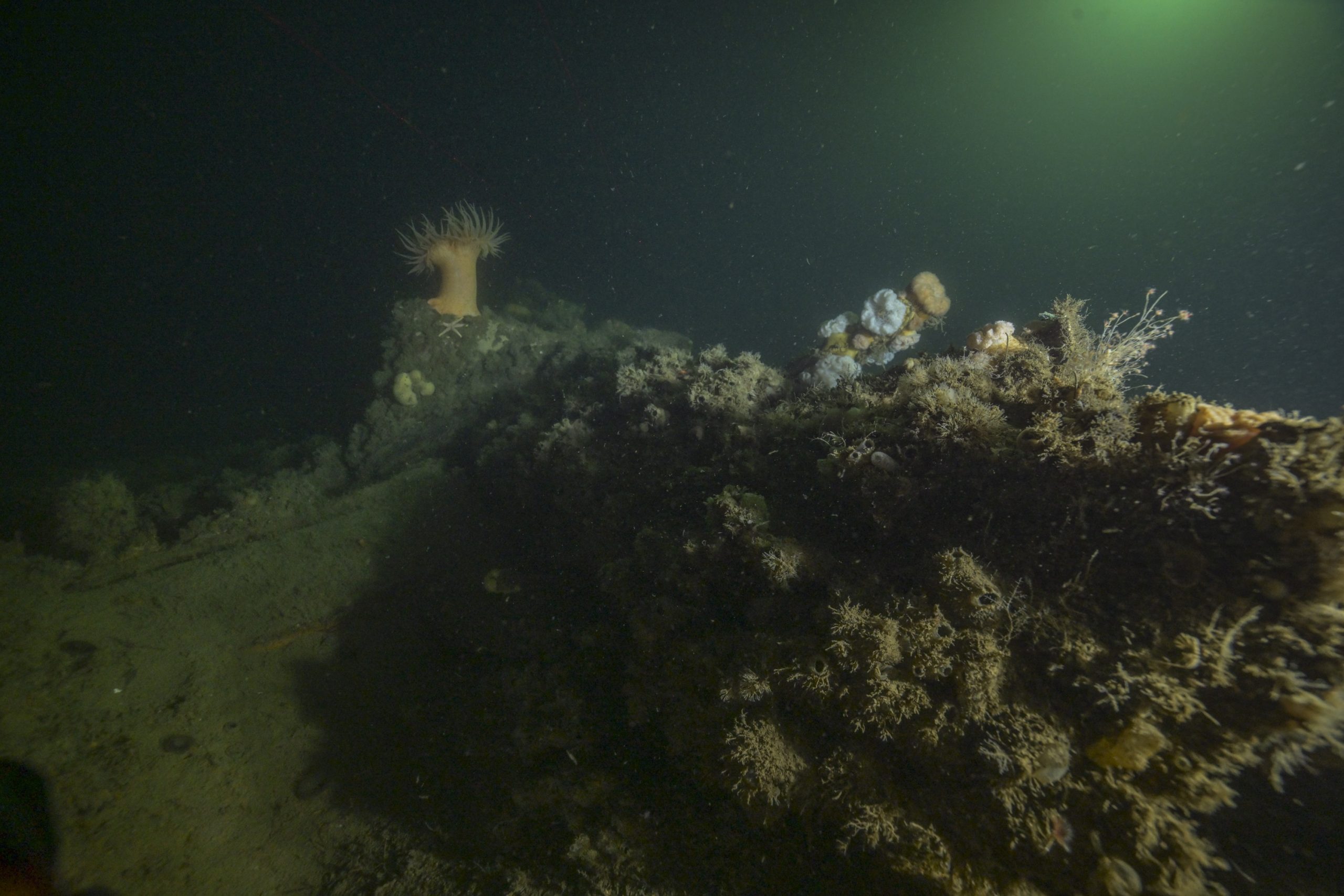
Removing Marine Debris from Shipwrecks
In July 2024, the Department of Commerce and NOAA announced $27 million in funding for projects to prevent and remove marine debris in coastal and Great Lakes communities as part of President Biden’s Investing in America agenda, under the Bipartisan Infrastructure Law. This funding supports innovative research and fosters local coalitions to address urgent marine debris issues by using NOAA Sea Grant’s partnered approach to bring science together with communities for solutions that work. A team led by Woods Hole Oceanographic Institution (WHOI) researchers Kirstin Meyer-Kaiser and Robin Littlefield in partnership with WHOI Sea Grant is one of the recipients. The project will focus on the prevention, education and removal of marine debris from underwater cultural heritage locations.
» Read the press release
» Project website
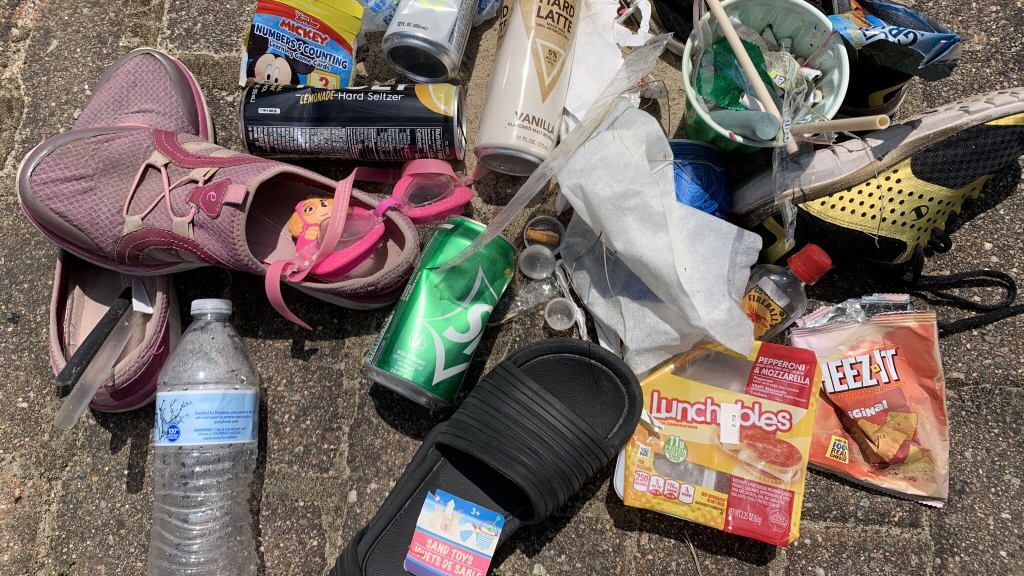
Reducing Single Use Plastics in the Tourism and Hospitality Industry on Cape Cod
In 2023, WHOI Sea Grant and CARE for the Cape & Islands were awarded a grant to address the problem of single-use plastics used in tourism-based food and hospitality businesses on Cape Cod that contribute to marine debris. The grant is part of the NOAA Sea Grant Program’s Marine Debris Community Action Coalitions competition supported by the Bipartisan Infrastructure Law and the Inflation Reduction Act. The three-year project builds on CARE’s well-established network of community and municipal partnerships to expand the use of sustainable alternatives to single-use food- and serviceware, including exploring the potential for a reusable serviceware program to transition businesses away from single-use plastics.
» Learn More
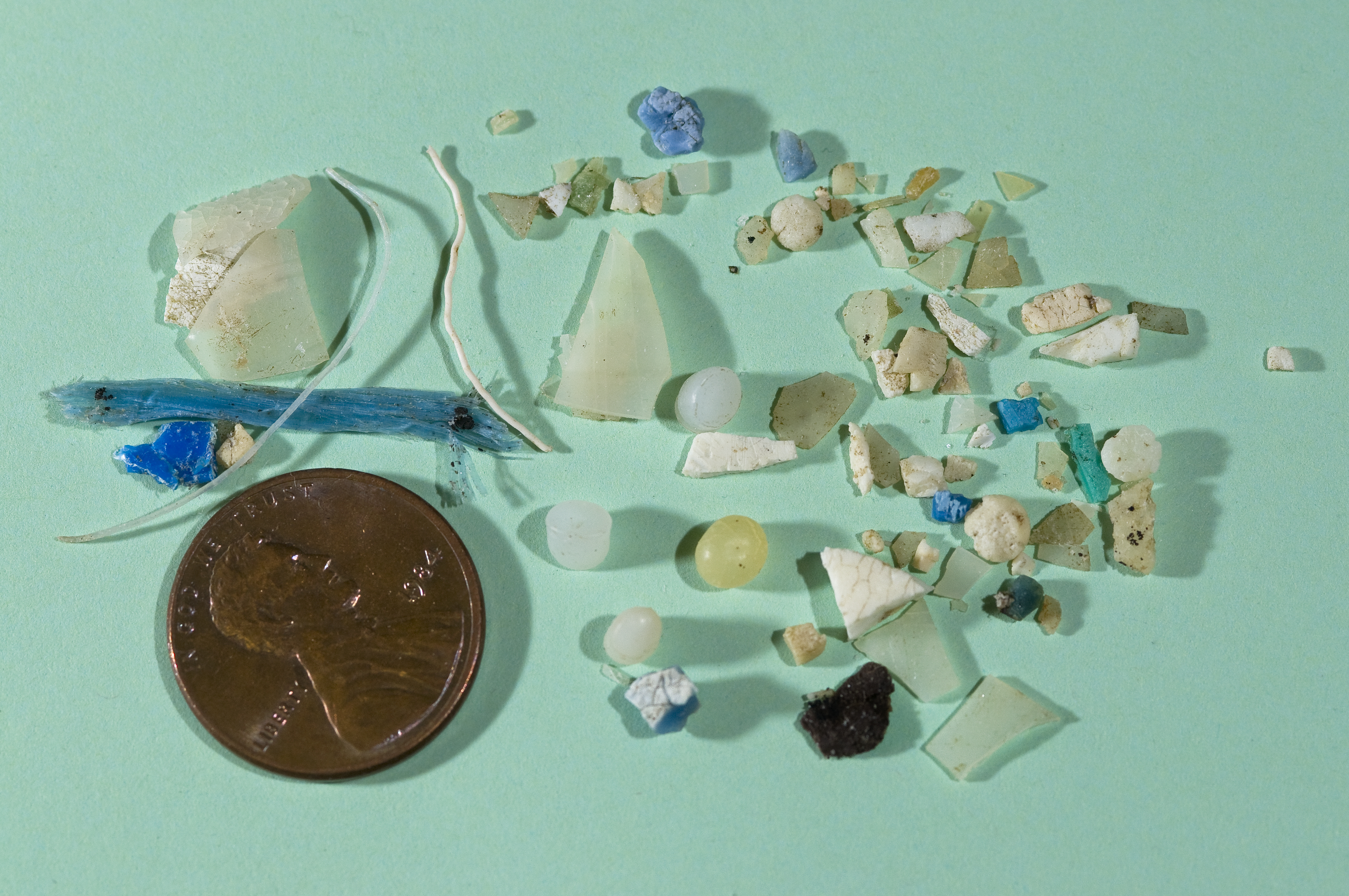
Microplastics
Microplastics have many sources, shapes and sizes in the marine environment yet we know very little about their abundance and fate in the coastal ocean. Recognizing the growing problem of marine debris in the environment, in 2020 WHOI Sea Grant funded two new research projects that aim to better understand the sources, transport and uptake of microplastics by certain wild and cultured sea food. The funded projects will provide an important foundation for microplastics research to come.
» About the funded projects
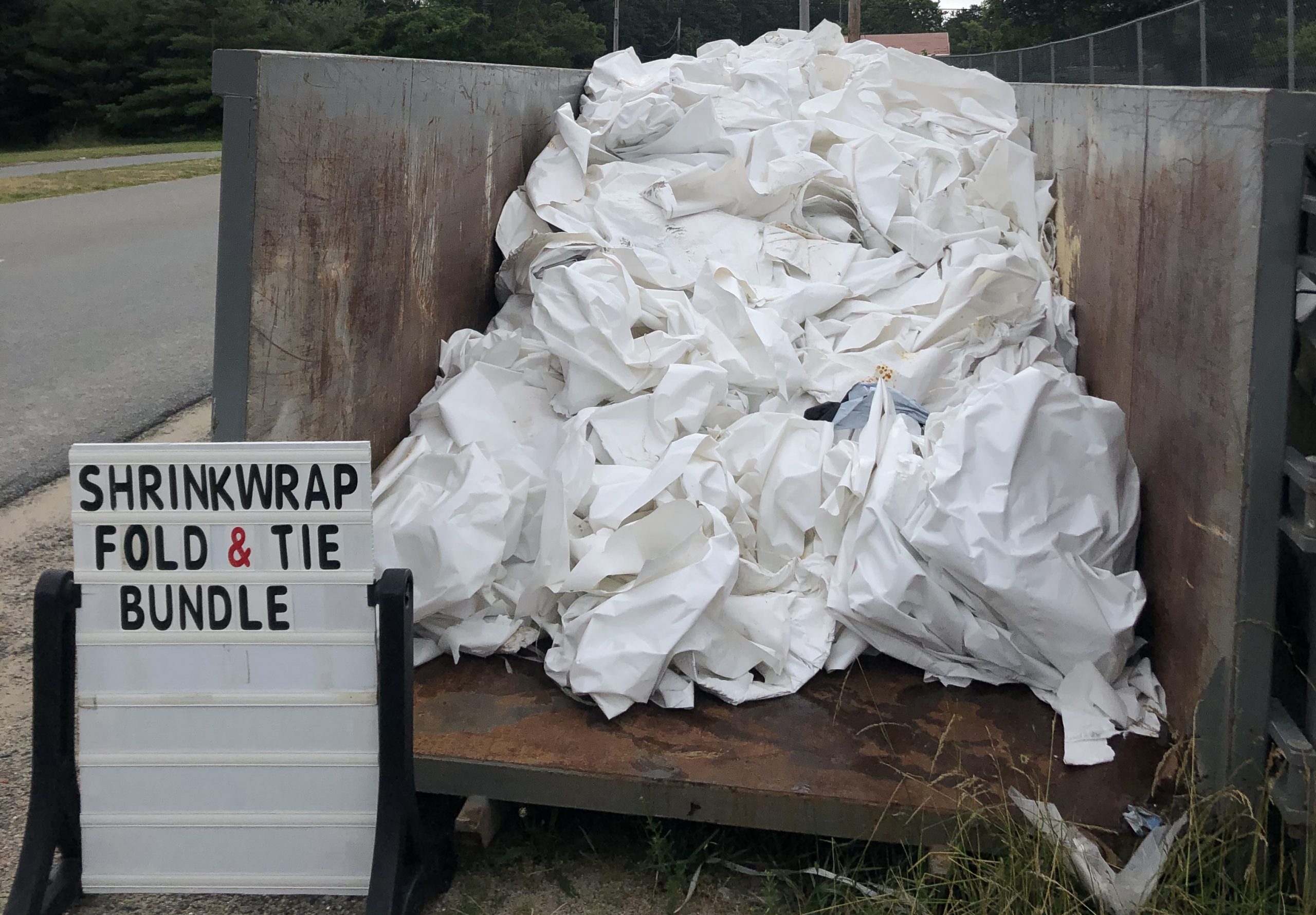
Marine Shrink Wrap Recycling Program and Alternatives Study
In 2020, WHOI Sea Grant was funded by the National Sea Grant Office and NOAA Marine Debris program to collect shrink wrap in three locations across Cape Cod. With the additional support, we brought in an intern to increase our outreach among boatyards, marinas, and the public. We also conducted two surveys: one of boatyards and one of boat owners to better understand the breadth of shrink wrap use across the Cape, the reasons shrink wrap users to choose to use it, and to understand their perceptions of alternatives to shrink wrap.
» Factsheet summary of survey findings
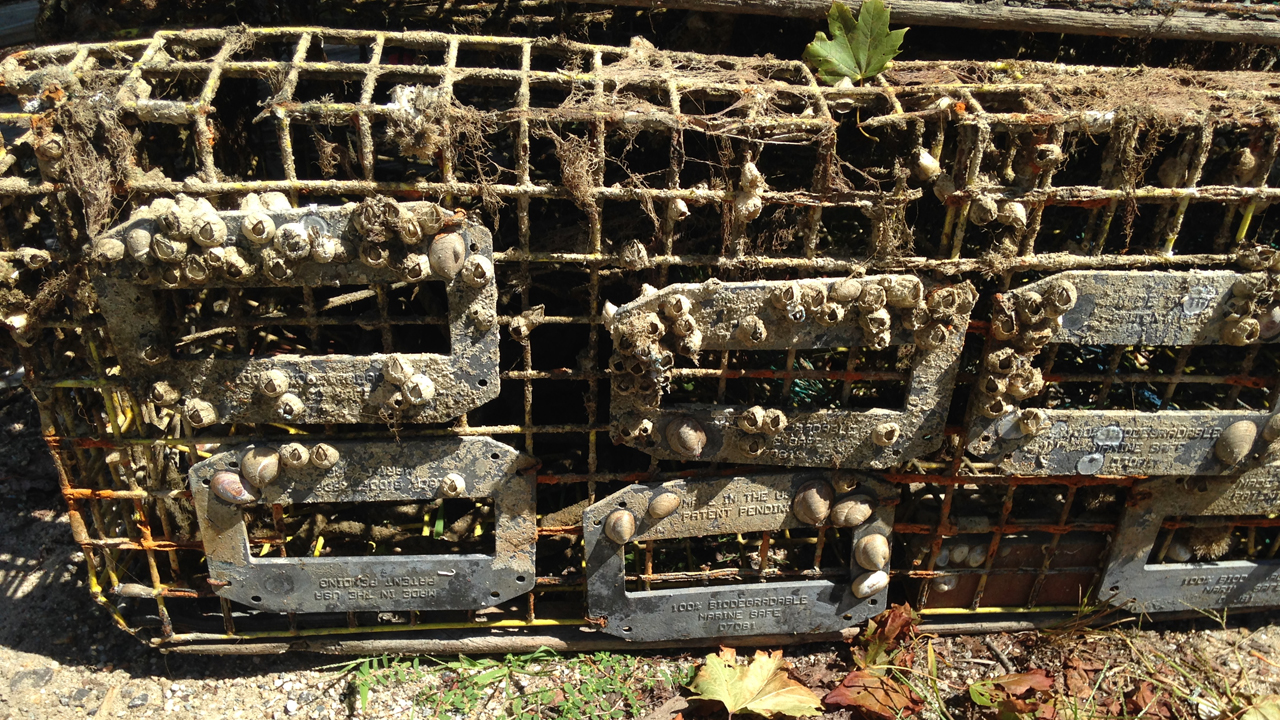
Derelict Fishing Gear
Lost or derelict fishing pots can remain a source of mortality for marine life for a number of years. Through a partnership with the Virginia Institute of Marine Sciences (VIMS), WHSG participated in the in situ testing of a newly developed biodegradable escape vent panel for lobster traps. Biodegradable panels are an improved mechanism for the escape of trapped animals and should be considered as a method for reducing adverse impacts associated with derelict lobster pots.
» Read the final report
Engaging with Our Community
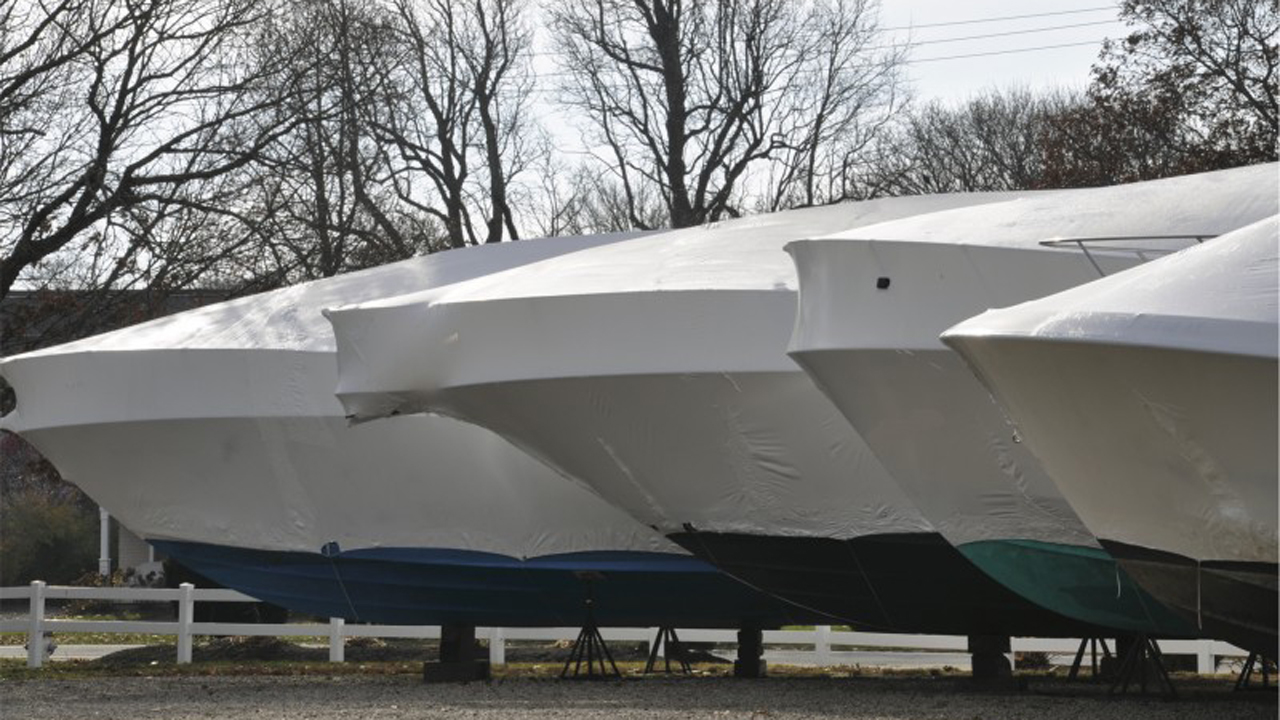
Boat Shrink Wrap Recycling Program
Each year from April through June, WHOI Sea Grant partners with Cape Cod Cooperative Extension and transfers stations at towns across the Cape to conduct a boat shrink wrap recycling program. In 2024, the program diverted 46 tons of plastic from the waste stream for recycling.
» Read about the WHOI Sea Grant Shrink Wrap Recycling Program
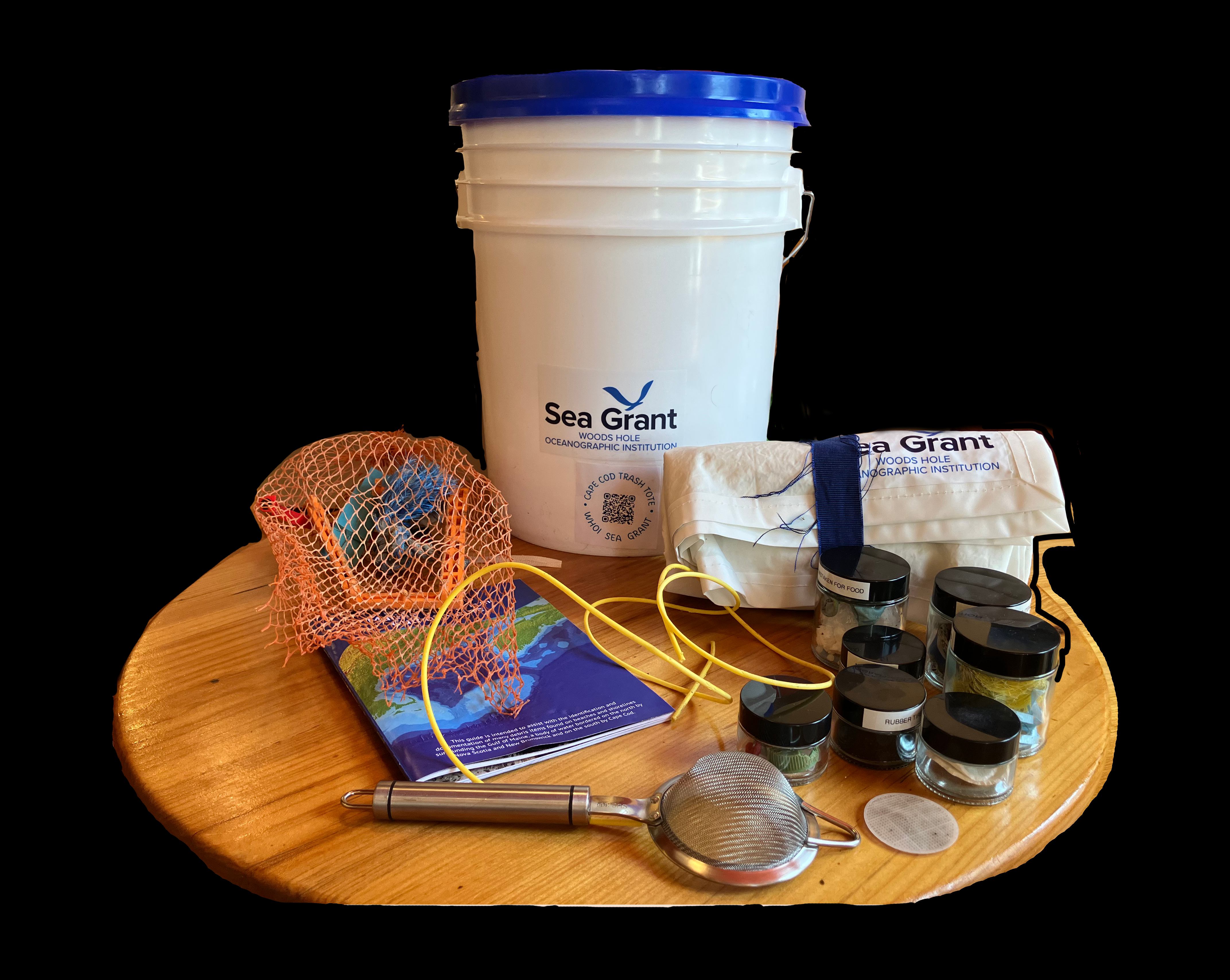
Cape Cod Trash Tote
The Cape Cod Trash Tote is an easy to use, transportable educational tool providing information on marine pollution for people participating in beach cleanups and outreach events, or as a supplement to a formal lesson plan. Developed in 2024 with funding from the Bilzekian Family Foundation, the Trash Tote contains the related educational materials and can also be used for collected trash during beach clean-ups. Because single-use plastics make up most marine pollution, the Cape Cod Trash Tote emphasizes the need to be aware of plastic in our environment and encourages individuals to dispose of it properly and to choose reusable products over ones made of plastic. The Cape Cod Trash Tote is based on the Trash Tote created and generously shared by the Great Lakes Sea Grant program.
» Learn more
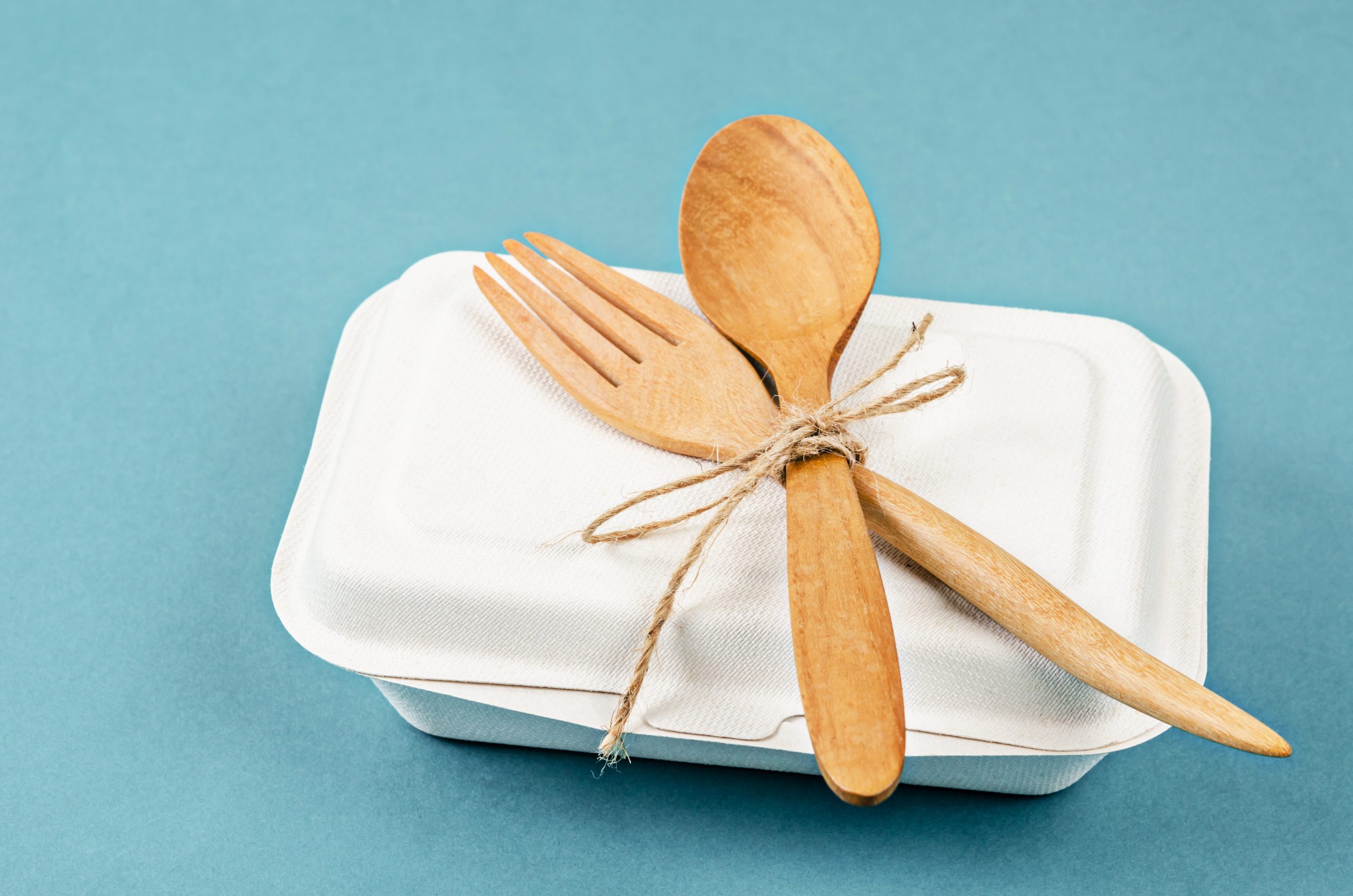
Compostable Serviceware Guide
In 2020, WHOI Sea Grant worked with the Wellfleet Recycling Committee to develop a compostable food serviceware buying guide. The goal of the buying guide is to encourage restaurants and other food service businesses to use non-plastic disposable food serviceware when durable serviceware is not an option. This guide, created under the aegis of Take Care Cape Cod, is a living document which will be updated periodically as new products become available.
» Download the Guide
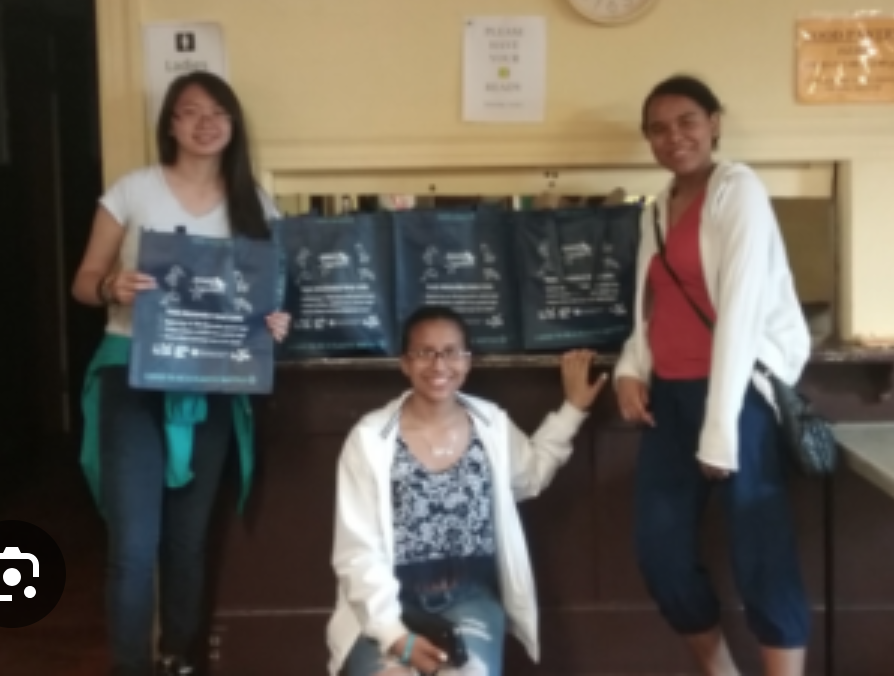
Beach Sisters: Keeping Plastic Bags off the Beach
Beach Sisters is a collaborative program between Northeastern University’s Marine Science Center & Girls Inc., an organization that provides educational programs to girls particularly those in high-risk, under-served areas, and they work to keep trash out of the coastal zone. Passionate about the marine environment, the peer leaders at Beach Sisters are high school students in Lynn, Mass., who teach weekly marine science lessons to elementary and middle school girls. Troubled by the number of single-use plastic bags they saw littering their community, the Beach Sisters were motivated to help their community transition away from plastic by creating the Beach Sisters reusable bag. With support from WHOI Sea Grant and others, the Beach Sisters designed, made and distributed 750 reusable bags in 2018, handing them out at soup kitchens and food pantries in Lynn.
» Learn more about the Beach Sisters program
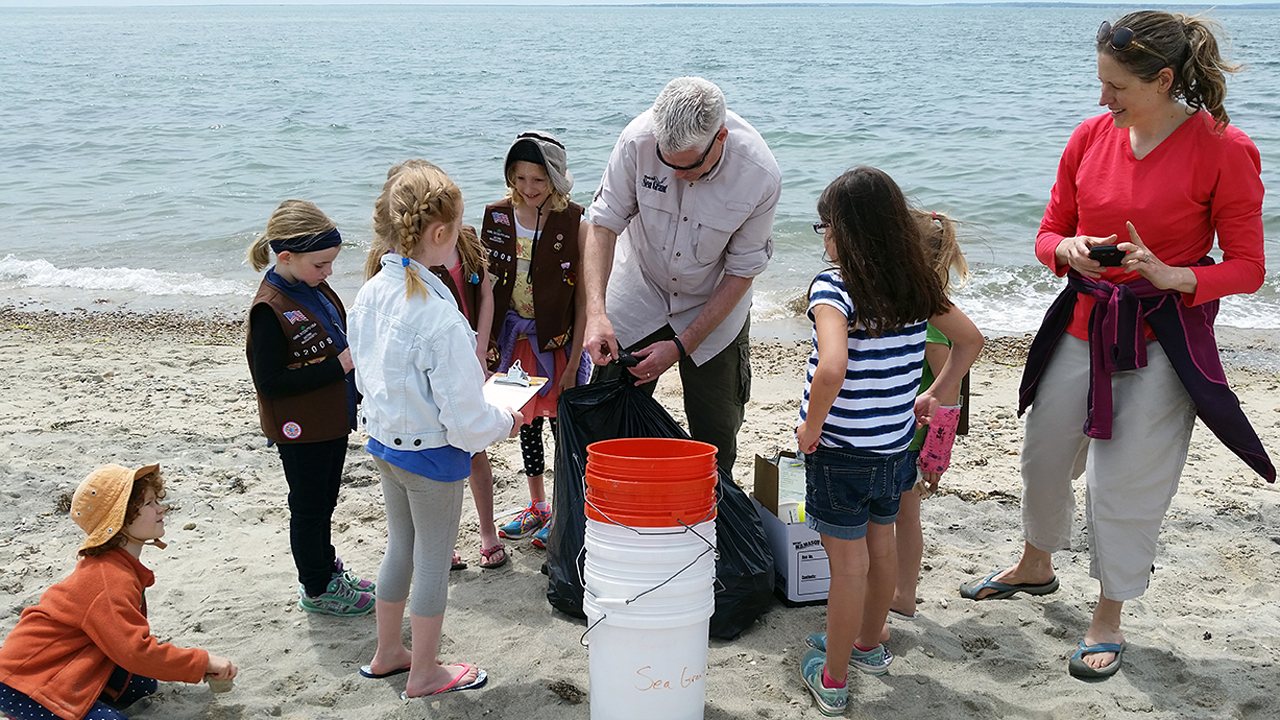
Beach Clean-Ups
WHOI Sea Grant is actively involved in the mitigation of marine debris in our environment through beach cleanups, not only to collect trash from area beaches but also for data collection efforts on the source of regional marine debris and its mitigation. We weigh and categorize the trash we collect and contribute our data to the NOAA Marine Debris database. To arrange for an educational beach cleanup, email seagrant@whoi.edu.
Resources
Field Guide to Marine Debris - created by the Center for Coastal Studies, Provincetown, MA. This guide is exceptionally well organized and provides photos of every type of debris one is likely to find during a beach clean up. Chock full of useful information, it is highly recommended.
Guide to Marine Pollution Sources and Solutions - created by WHOI Sea Grant for the Cape Cod Trash Tote, this is a handy tool for teaching about marine pollution. Trash can end up in the ocean from many sources as shown on this Cape Cod map. Review the list of ways to create less waste and things you can do for trash-free waters.
Guide to Plastic Identification - created by WHOI Sea Grant for the Cape Cod Trash Tote. Learn about the common sources of microplastics and the seven categories of plastic, the products are made from them, and how readily they can or can't be recycled. Remember: Recycling is the last best option. Reducing our use and reusing items are preferred.
NOAA Microplastics Marine Debris Fact Sheet - a two-page factsheet about what microplastics are and why they are a problem.
Southern New England Marine Debris Action Plan
Factsheet: Emerging Research on Shellfish, Aquaculture and Marine Plastics
(Northeast Regional Sea Grant publication - 2024)
Marine Pollution Tracking Apps & Observing Tools
- CleanSwell
- NOAA Marine Debris Tracker
- MIT Sea Grant Marine Debris Visualization Tool
- Integrated Marine Debris Observing System
